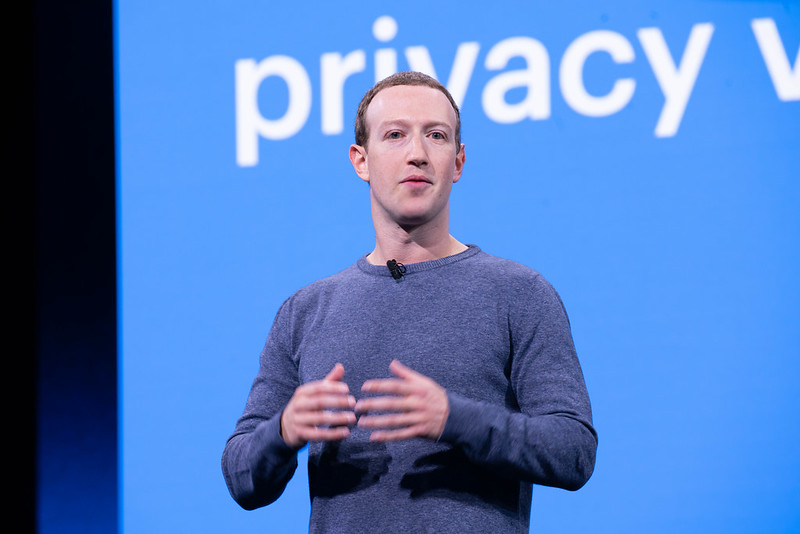If Priscilla Chan, an American citizen and wife of Facebook CEO Mark Zuckerburg, was passing through Cairo International Airport and was stopped by a police officer who searched her phone illegally would she file a lawsuit? Possibly.
If Priscilla and her husband were Egyptian then the answer is definitely not. It is common knowledge that in Egypt, the police are above the law. If this hypothetical situation actually came to pass, I would advise Mark Zuckerburg not to run any social media campaigns publicising what happened with his wife because he would either be arrested or forcibly disappeared. Even if our hypothetical Egyptian Mark Zuckerberg managed to flee the country after that, he wouldn’t be able to create a campaign to help those in similar dangers -Facebook only allows political campaigns for those physically inside the country. If he managed to seek help from a friend or family member inside Egypt, then they will also likely be arrested immediately; Facebook’s policy now requires someone’s full name in order to make a political campaign or advertisement. Thus, my advice to you my friend would be to internalise your anger. Facebook’s policies aid and abet tyrants. That is what Egyptians must face.
In 2017, the executive boards of Facebook, Twitter, and Google all announced that they found Russian hackers had bought ads on their platforms and used fake names a year previously to create controversial stories and spread fake news ahead of the American presidential elections of 2016. The companies handed over three thousand divisive ads to the US Congress, which they believed were bought by Russian parties in the months leading up to the elections in order to influence the outcome.
Between them, the tech companies appointed more than a thousand employees to review ads to ensure they are consistent with their terms and conditions and prevent misleading content. This was intended to deter Russia and others from using their social networks to interfere in the elections of other nations.
This led to Mark Zuckerburg’s announcement that outlined steps to help prevent network manipulation, including imposing more transparency on political and social ads that appear on Facebook. This included making advertisers provide identifying documentation for political, social and election-related ads. Likewise, he announced that the advertisements would have to bear the name of the person that funded the advertisement, and that the predominant funder of the advertisement must reside in the country itself, and the financing must be done locally.
I find that there is a significant gap between the reality of what is truly happening in the Middle East and what the West understands about it. What is happening in Egypt specifically is not comparable to anything happening in the US or Europe and thus the international policies for such companies cannot be developed based on the desires and needs of only the American public.
These laws were supposed to help American society be more transparent but instead are being used as a weapon by the Egyptian regime in order to crack down on people’s rights and freedoms and they put human rights activists in Egypt in further danger.
Revealing the full names of those creating political or human rights campaigns leads to these individuals being constantly under threat, of both their posts being taken down and a potential government crackdown on them. As a result, these laws become a means of control for the government to further silence the voices of the masses. We, as human rights defenders in Egypt, need security and privacy, as the nature of our work exposes violations within systems and governments. There are a large number of risks that we are already exposed to daily because of our activity, and it is possible to monitor us in many ways, including the digital system, in which the system can currently determine all our activity through such transparency laws.
We are not looking for equal rights or to enter elections, rather we are merely attempting to possess our own humanity, preserve our dignity, and stand up for our rights. We dedicate our lives for equality and to prevent infringements on the rights of those in our society. Now that our activism is deemed nearly impossible by your laws, Mr Zuckerburg, you truly leave us with no option as we cannot put our families and communities at risk of imprisonment due to our names and the names of those helping us being made available.
I urge you to make digital privacy and security of human rights defenders a top priority, as today these activists have become truly vulnerable to repressive tactics as the Egyptian regime uses your laws as a loophole to remove opposition.
We have already had bad experiences with your laws.
Human rights defender Sherif Alrouby has been imprisoned by the Egyptian regime for years and we attempted to campaign for his release. We tried to spread a song entitled ‘Sherif Alrouby is imprisoned oh country’ and were impeded by Facebook’s policies. We had no option but to stop our campaign in order to prevent any security issues with the individuals that funded our advertisement as their full names were displayed.
Facebook’s policies impede our work as human rights defenders. We recognize that you support freedom of speech and desire increased transparency, but you do not realise the severity of what is happening in Egypt. A prime example of the severity of the situation is the killing of activist Shady Habash inside prison for merely making a song criticising the regime’s policies during the reign of El-Sisi. Likewise, my friend Galal El Behiery spent more than six years in prison for writing the song’s words – he has been on hunger strike in prison for more than 14 days.
I urge you all to understand the differences between nations. Egypt is not a transparent nation. Rather, it is an oppressive nation that exploits transparency to kill and dispose of opposition.





